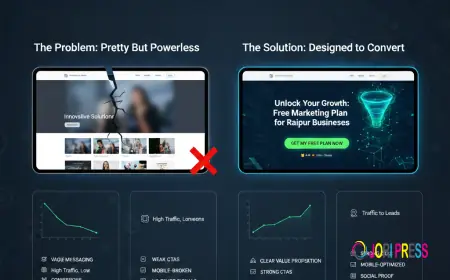Cotton Hand Bag Market: Key Drivers & Trends
The global Cotton Hand Bag market is driven by increasing consumer preference for eco-friendly, sustainable products. Cotton bags offer durability, biodegradability, and stylish versatility, boosting demand.

The global Cotton Hand Bag Market is entering a dynamic phase of growth, as sustainability and fashion converge to reshape consumer preferences worldwide. According to industry projections, the market stood at USD 4.56 billion in 2024 and is expected to reach USD 6.02 billion by 2030, growing at a steady CAGR of 4.12% during the forecast period. This expansion is strongly fueled by rising environmental consciousness, the increasing influence of eco-friendly fashion trends, and growing disposable incomes in emerging economies.
As consumers worldwide lean toward lifestyle products that are not just stylish but also ethically sourced and sustainable, cotton handbags have emerged as a preferred choice. Being biodegradable, reusable, breathable, and skin-friendly, cotton-based bags present a compelling alternative to synthetic and plastic bags, which have long dominated the global accessories market.
From luxury fashion runways in Europe to affordable everyday utility in Asia-Pacific, cotton handbags are witnessing a surge in adoption across demographics. Brands are innovating with organic cotton, recycled cotton, and artisanal designs to align with consumer values, offering not just utility but also an expression of sustainability.
Industry Key Highlights
-
Market Size & Growth
-
Valued at USD 4.56 billion in 2024.
-
Projected to grow at a CAGR of 4.12% through 2030, reaching USD 6.02 billion.
-
-
Sustainability at Core
-
Cotton handbags are gaining traction as eco-friendly substitutes for synthetic and leather handbags.
-
Growing regulatory pressure against plastics fuels demand for biodegradable alternatives.
-
-
Consumer Demographics
-
Millennials and Gen Z are leading the shift toward sustainable fashion.
-
Rising disposable incomes in Asia-Pacific and Latin America broaden consumer bases.
-
-
Regional Highlights
-
Europe remains the fastest-growing region due to strong sustainability movements and regulatory frameworks.
-
Asia-Pacific contributes heavily to volume growth due to a large consumer population.
-
-
Distribution Evolution
-
Online channels are surging with the rise of e-commerce, social media marketing, and influencer collaborations.
-
Specialty stores and fashion boutiques continue to dominate premium and artisanal cotton handbag sales.
-
Download Free Sample Report - https://www.techsciresearch.com/sample-report.aspx?cid=28410
Emerging Trends
1. Sustainable Luxury & Ethical Fashion
Luxury fashion houses are embracing organic cotton handbags as sustainability becomes an indispensable element of brand identity. High-end consumers are willing to pay a premium for products that combine luxury aesthetics with eco-friendly values.
2. Rise of Online-First Fashion Labels
Direct-to-consumer (DTC) cotton handbag brands are gaining global traction. Through Instagram, TikTok, and Pinterest marketing, brands create storytelling experiences that resonate with eco-conscious shoppers. Influencer-led campaigns amplify awareness, positioning cotton handbags as trendy lifestyle accessories.
3. Customization & Personalization
Consumers are increasingly looking for unique, customized cotton handbags that reflect individuality. From personalized embroidery to bespoke prints and patterns, customization has become a vital value-add in premium and mass-market segments alike.
4. Circular Economy & Recycling
A significant trend is the use of recycled cotton fibers in handbag production. This not only reduces textile waste but also resonates strongly with consumers who prefer circular fashion practices.
5. Artisanal & Handmade Appeal
Craftsmanship is regaining value. Handmade cotton handbags produced by local artisans are rising in popularity, especially among consumers who value authenticity, heritage, and fair-trade practices.
Key Market Drivers
1. Environmental Awareness & Regulations
Governments worldwide are enforcing stricter plastic reduction policies, encouraging the use of biodegradable alternatives. Cotton handbags perfectly align with these regulatory shifts, ensuring long-term market sustainability.
2. Rising Disposable Incomes
Consumers in emerging economies such as India, China, and Brazil are shifting from need-based purchases to lifestyle-driven consumption, increasing demand for stylish and sustainable handbags.
3. Health and Skin-Friendly Nature
Cotton handbags are gaining preference due to their hypoallergenic and breathable properties, making them ideal for consumers with skin sensitivities—unlike synthetic alternatives that may cause irritation.
4. Fashion Industry Influence
Global fashion runways and campaigns increasingly spotlight sustainable accessories. Cotton handbags are now positioned not only as eco-friendly products but also as fashion-forward statement pieces.
5. E-commerce Penetration
The rapid growth of online shopping platforms has democratized access to global brands. Cotton handbag collections are widely showcased online, making them accessible across geographies and income levels.
Market Segmentation Insights
By Material Type
-
Organic Cotton: Strong growth due to premium positioning and health benefits.
-
Recycled Cotton: Emerging as a sustainability-driven innovation.
-
Traditional Cotton: Continues to dominate the mass-market segment.
By Handbag Type
-
Tote Bags: Most popular due to practicality and everyday use.
-
Shoulder Bags: Rising demand in fashion-conscious consumers.
-
Clutch Bags: Preferred for events and occasions.
-
Others: Includes backpacks, drawstring bags, and crossbody designs.
By Distribution Channel
-
Online: Fastest growing, supported by digital marketing and influencer culture.
-
Specialty Stores: Key outlets for premium and artisanal handbags.
-
Supermarkets/Hypermarkets: Offer affordable, mass-market cotton handbags.
-
Others: Departmental stores, pop-up shops, and direct sales.
Regional Highlights
Europe
Europe leads the sustainability movement, with strong regulatory frameworks reducing plastic use. Eco-conscious consumers and established fashion houses adopting eco-friendly practices make Europe the fastest-growing region.
Asia-Pacific
High population density, rising disposable incomes, and increasing awareness about sustainable living contribute to rapid market expansion. Countries like India and China represent high-volume growth markets.
North America
Consumers are increasingly shifting to organic and artisanal fashion products, creating steady demand for eco-friendly handbags.
Latin America & Middle East
Emerging awareness campaigns, combined with the influence of global fashion, are gradually boosting demand in these regions.
Competitive Analysis
The global Cotton Hand Bag Market is competitive, with a mix of multinational corporations, regional players, and artisanal brands. Companies are competing through design innovation, material sustainability, and digital presence.
Major Companies Operating in the Market:
-
The Cotton Bag Company
-
MGC Bags
-
I Khodal Bag Private Limited
-
Double R Bags
-
Zara
-
Brown Living
-
TBCO Retail Ltd
-
Paramount Corporation
-
Refratex India Private Limited
-
Smris
Competitive Strategies:
-
Product Diversification: Offering totes, shoulder bags, clutches, and eco-fashion hybrids.
-
Sustainability Initiatives: Using organic and recycled cotton fibers.
-
Collaborations & Partnerships: Engaging with influencers, NGOs, and fashion designers.
-
Global Expansion: Leveraging e-commerce for international reach.
-
Customization: Introducing bespoke services for personalization.
Future Outlook
The cotton handbag industry is poised for steady, long-term growth. As sustainability becomes a mainstream lifestyle choice, demand for cotton handbags will expand across both premium and mass-market segments. With technological integration such as smart textiles and eco-friendly dyeing techniques, brands can differentiate and add value.
By 2030, cotton handbags are expected to not only serve as practical accessories but also as fashion statements that embody eco-responsibility. Rising collaborations between luxury houses and eco-conscious designers will elevate the market’s prestige. Meanwhile, emerging economies will drive large-scale adoption, making the market inclusive and global.
10 Benefits of the Research Report
-
Provides accurate market size and growth forecasts until 2030.
-
Identifies emerging trends shaping the cotton handbag industry.
-
Offers detailed segmentation by material type, handbag type, distribution channel, and region.
-
Analyzes regional growth dynamics with insights into key opportunities.
-
Highlights competitive landscape and strategies of leading players.
-
Provides insights into sustainability and regulatory drivers impacting growth.
-
Evaluates the role of e-commerce and digital marketing in shaping consumer preferences.
-
Assesses consumer behavior shifts in emerging economies.
-
Equips businesses with tools to make data-driven investment decisions.
-
Offers customization opportunities for stakeholders seeking tailored insights.
The global Cotton Hand Bag Market is entering a transformative era, driven by sustainability, fashion innovation, and consumer consciousness. What was once seen as a utilitarian product is now at the forefront of a fashion revolution that aligns lifestyle with environmental responsibility. As the world moves toward a circular economy and eco-friendly fashion, cotton handbags are expected to solidify their place as essential accessories for modern consumers.
With innovation, strategic partnerships, and a strong focus on eco-conscious storytelling, the market is poised for sustained growth through 2030 and beyond.
Contact Us-
TechSci Research LLC
420 Lexington Avenue, Suite 300,
New York, United States- 10170
M: +13322586602
Website: www.techsciresearch.com
What's Your Reaction?
 Like
0
Like
0
 Dislike
0
Dislike
0
 Love
0
Love
0
 Funny
0
Funny
0
 Angry
0
Angry
0
 Sad
0
Sad
0
 Wow
0
Wow
0


















































